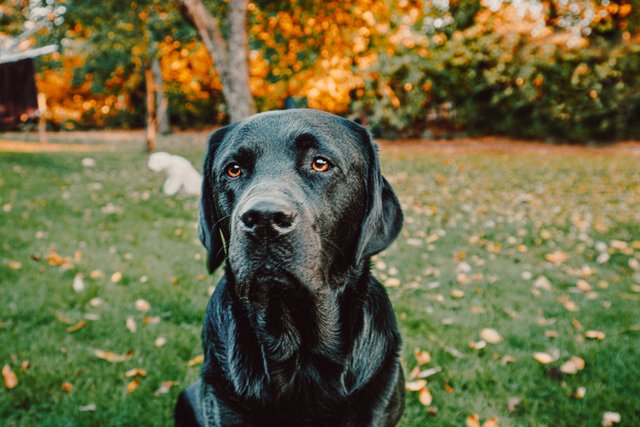innocent eye

Black dogs evoke many different impressions upon first glance: Many look regal and sophisticated, some have a hint of mystery, while others look daring or intimidating. No matter their coat or color, their personalities vary. Some may stick close to the general description of the breed's disposition, but it depends most on the individual dog's upbringing and demeanor.
A dog’s color is due to the type of pigmentation the dog has in the skin. In the canine world, black is the dominant gene. A dog either has black-brown or yellow-red pigmentation genetically. All other colors result from different genetic factors or modifiers acting on those pigments. Pigmentation affects the dog’s hair, skin, and eyes and creates visible patterns and colors. For most dogs to appear black, they must possess the Dominant Black gene (K allele).1 There are rare instances of recessive genes resulting in black coat color.
So, it is common to see black coats among many different types of dogs, but these breeds have the highest likelihood of being all black, or mostly black with just a bit of white, brown, or tan.
According to some shelters and breeders, with dogs of the same breed or litter that come in black and other colors, such as poodles, the black-coated dogs may fail to get adopted or are adopted last compared to other colored dogs. This dog adoption issue is also known as "black dog syndrome" and is based on anecdotes and assumptions. Factually, there are more black dogs in the world, as black is a more dominant color, and coat color has no impact on personality or temperament.